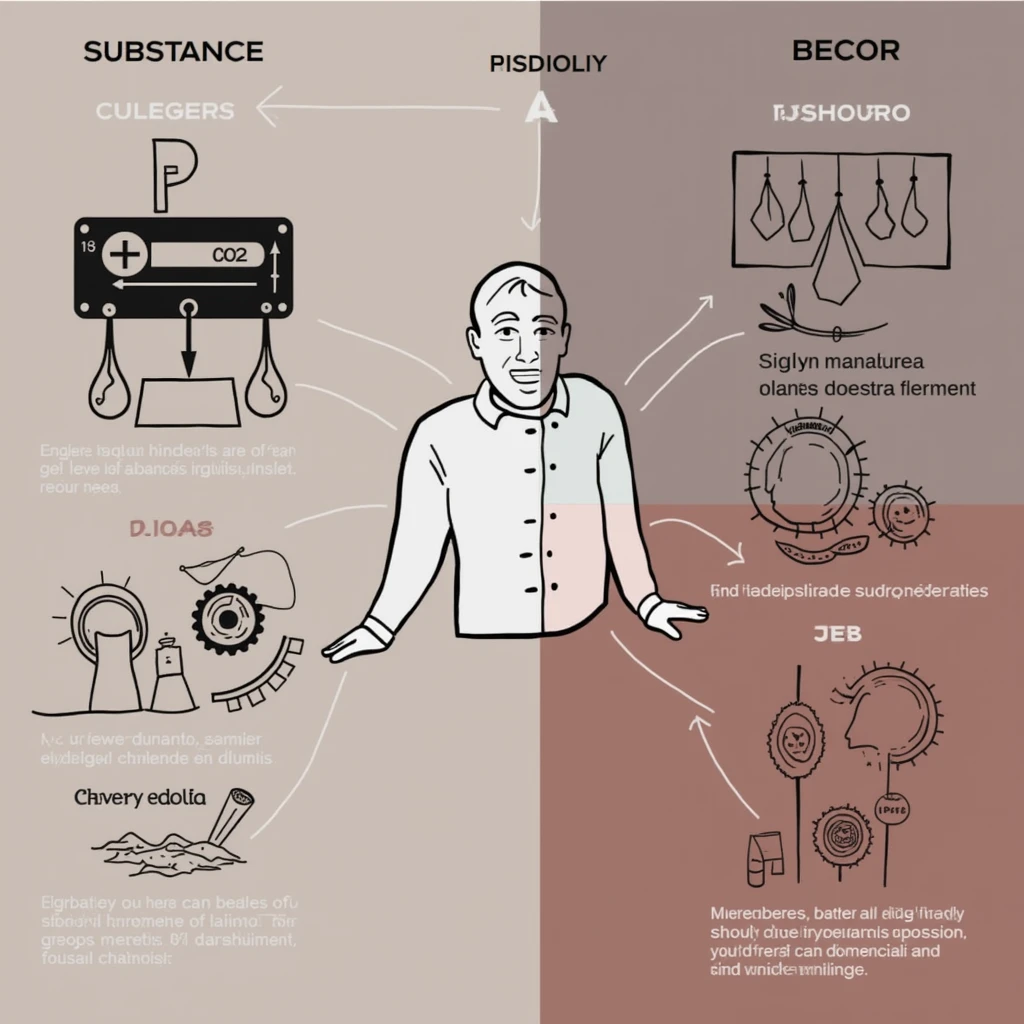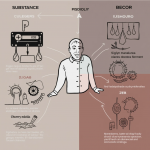
Understanding Substance Abuse and Addiction: A Comprehensive Overview
Introduction
Substance abuse and addiction are significant public health issues that affect millions of individuals and their families worldwide. The complexities of addiction encompass not only the physical dependence on substances but also psychological, social, and environmental factors. This article aims to provide a comprehensive understanding of substance abuse and addiction, exploring their causes, effects, and potential treatment options.
What is Substance Abuse?
Substance abuse refers to the harmful or hazardous use of psychoactive substances, including alcohol and illicit drugs. It manifests when individuals consume substances in a way that leads to significant impairment or distress. This abuse can range from occasional misuse to chronic addiction.
Common Substances Abused
- Alcohol: The most widely used psychoactive substance, often leading to alcohol dependence.
- Opioids: Prescription painkillers and illegal drugs like heroin, known for their high potential for addiction.
- Stimulants: Substances like cocaine and methamphetamine that increase alertness and energy but carry severe risks of addiction.
- Cannabis: While increasingly legalized, cannabis can still lead to problematic use and dependence in some individuals.
- Benzodiazepines: Prescription medications used for anxiety and sleep disorders that can lead to dependence when misused.
Understanding Addiction
Addiction is a chronic disease characterized by compulsive drug seeking and use, despite harmful consequences. It alters brain function and structure, leading to changes in behavior, judgment, and decision-making.
The Cycle of Addiction
- Initial Use: Experimentation with substances often begins out of curiosity or social pressure.
- Increased Tolerance: Over time, individuals may require higher doses to achieve the same effects, leading to increased use.
- Dependence: Physical and psychological dependence develops, where individuals experience withdrawal symptoms when not using the substance.
- Addiction: Compulsive behavior takes over, making it difficult to stop using the substance even when it negatively impacts health and relationships.
Causes of Substance Abuse and Addiction
The development of substance abuse and addiction is influenced by a complex interplay of various factors:
1. Genetics
Genetic predisposition plays a significant role in addiction. Research suggests that individuals with a family history of addiction are more likely to develop substance use disorders.
2. Environmental Factors
Environmental influences, such as exposure to substance use in the family or community, can increase the risk of addiction. Stressful life events, trauma, and peer pressure also contribute to this risk.
3. Mental Health Disorders
Many individuals with substance use disorders also suffer from co-occurring mental health conditions, such as anxiety, depression, or PTSD. Substance use may be a coping mechanism for these underlying issues.
4. Social Factors
Socioeconomic status, lack of social support, and cultural attitudes towards substance use can also impact the likelihood of substance abuse and addiction.
The Impact of Substance Abuse and Addiction
Substance abuse and addiction have far-reaching effects on individuals, families, and communities.
1. Health Consequences
- Physical Health: Chronic substance use can lead to a variety of health issues, including liver disease, cardiovascular problems, infectious diseases (like HIV/AIDS), and respiratory issues.
- Mental Health: Addiction often exacerbates mental health conditions and can lead to cognitive decline, anxiety, and depression.
2. Social Consequences
- Family Strain: Relationships with family and friends can suffer due to the behaviors associated with addiction, often leading to breakdowns in communication and trust.
- Employment Issues: Substance abuse can result in job loss, decreased productivity, and increased absenteeism, affecting financial stability.
3. Economic Impact
The economic burden of substance abuse is staggering, including healthcare costs, lost productivity, and criminal justice expenses. According to the National Institute on Drug Abuse (NIDA), substance abuse costs the United States over $740 billion annually.
Treatment Options for Substance Abuse and Addiction
Effective treatment for substance abuse and addiction is multifaceted, often requiring a combination of approaches tailored to the individual’s needs.
1. Detoxification
Detox is often the first step in treatment, allowing the body to rid itself of substances while managing withdrawal symptoms under medical supervision.
2. Behavioral Therapies
- Cognitive Behavioral Therapy (CBT): This approach helps individuals identify and change negative thought patterns and behaviors associated with substance use.
- Motivational Interviewing (MI): A counseling technique that enhances an individual’s motivation to change by exploring and resolving ambivalence.
3. Medication-Assisted Treatment (MAT)
MAT combines behavioral therapy with medications to treat substance use disorders, particularly for opioid and alcohol dependence. Medications like methadone, buprenorphine, and naltrexone can help manage cravings and withdrawal symptoms.
4. Support Groups and Recovery Programs
Programs like Alcoholics Anonymous (AA) and Narcotics Anonymous (NA) provide peer support and a community for individuals in recovery, emphasizing the importance of shared experiences in the healing process.
5. Holistic Approaches
Complementary therapies such as yoga, meditation, and art therapy can support traditional treatment methods by promoting mental and emotional well-being.
Conclusion
Substance abuse and addiction are complex issues that require comprehensive understanding and compassionate approaches. By recognizing the factors that contribute to these challenges and the profound impact they have on individuals and society, we can work towards more effective prevention and treatment strategies.
Key Takeaways
- Substance abuse refers to the harmful use of psychoactive substances, while addiction is a chronic disease characterized by compulsive drug-seeking behavior.
- Various factors contribute to the development of substance use disorders, including genetics, environment, and mental health.
- The impact of substance abuse extends beyond the individual, affecting families and communities.
- Effective treatment often involves a combination of detoxification, behavioral therapies, medication-assisted treatment, and support groups.
By fostering awareness and understanding, we can create supportive environments that promote recovery and reduce the stigma associated with addiction, ultimately leading to healthier communities.











